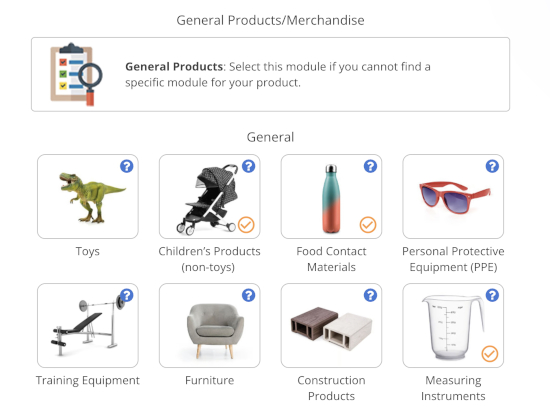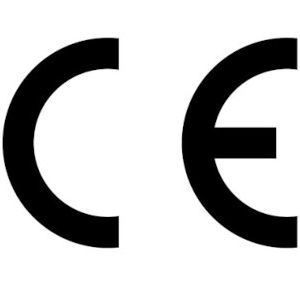
In the context of product compliance, implementing and delegated acts provide product-specific requirements within the context of product regulations and directives.
For example, the Ecodesign Directive sets general energy efficiency requirements for certain electronic products. However, implementing and delegated acts set applicable to specific products set the technical requirements that must be met.
Content Overview

FREE CONSULTATION CALL (30 MIN)
 Ask questions about compliance requirements
Ask questions about compliance requirements Countries/markets:
Countries/markets:
 Learn how we can help your business
Learn how we can help your business
You will speak with:Ivan Malloci or John Vinod Khiatani
What are implementing and delegated acts?
The EU may grant power to the European Commission to adopt implementing acts or delegated acts concerning specific legislation, such as directives and regulations. However, the two types of acts are used to achieve different goals.
Implementing acts:
- May apply in general or to individual situations, such as individual countries
- Provide rules for the application of directives and regulations, such as practical tools and databases
- Cannot add, remove, or change anything in the basic act, that is, the original directive or regulation
Delegated acts:
- May apply in general only (that is, they cannot address individual situations)
- Can amend or supplement “non-essential” parts of existing directives or regulations
As far as we understand, the EU uses the general term “act” to refer to different types of acts, such as “directives”, “regulations”, “decisions”, or “measures”. We explain the difference between these types of acts (e.g. Delegated Regulation) in the following sections of this guide.
Also, not that you can find implementing and delegated acts in the EU’s register of delegated acts and register of implementing acts.
Delegated acts
According to the EU’s Glossary of Summaries, delegated acts can amend or supplement non-essential elements of the legislative act (the ‘basic act’) that they are amending or supplementing. They are often related to the implementation of scientific and technical advancements.
For example, Commission Delegated Regulation (EU) 2024/3173 supplements the General Product Safety Regulation by setting rules regarding:
- Accessing and operating the Safety Gate System
- Entering information into the Safety Gate system
- Notification requirements
- Criteria for assessment of the level of risk
Types of delegated acts
There exist different types of delegated acts (e.g. Delegated Regulation). While we were not able to find information on the differences between the various types of delegated acts, there are differences between regulations, directives, and decisions. Per the page on “Types of legislation” published on the EU website, here are those differences:
a. Regulations – Legal enforceable acts that apply consistently across the EU as soon as they take effect
b. Directives – EU member countries should implement directives into their national regulations, which in turn require compliance by importers, manufacturers, and other economic operators
c. Decisions – Is directly applicable to specific countries, companies, or other entities to which it is addressed
Note that there may also exist other types of delegated acts.
Delegated Regulations Examples
Commission Delegated Regulation (EU) 2024/3173 of 27 August 2024 supplementing Regulation (EU) 2023/988 supplementing Regulation (EU) 2023/988 of the European Parliament and of the Council with regard to rules on access to and operation of the Safety Gate Rapid Alert System, information to be entered in that System, notification requirements and the criteria for assessment of the level of risk
Commission Delegated Regulation (EU) 2023/2197 of 10 July 2023 amending Regulation (EU) 2017/745 of the European Parliament and of the Council, as regards the assignment of Unique Device Identifiers for contact lenses
Delegated Directive Examples
Commission Delegated Directive (EU) 2015/863 of 31 March 2015 amending Annex II to Directive 2011/65/EU of the European Parliament and of the Council as regards the list of restricted substances
Commission Delegated Directive (EU) 2021/1206 of 30 April 2021 amending Annex III to Directive 2014/90/EU of the European Parliament and of the Council on marine equipment as regards the applicable standard for laboratories used by conformity assessment bodies for marine equipment
Delegated Decisions Examples
Commission Delegated Decision (EU) 2018/779 of 19 February 2018 on the applicable systems to assess and verify constancy of performance of metal-faced sandwich panels for structural use pursuant to Regulation (EU) No 305/2011 of the European Parliament and of the Council
Commission Delegated Decision (EU) 2018/771 of 25 January 2018 on the applicable system to assess and verify constancy of performance of anchor devices used for construction works and intended to prevent persons from falling from a height or to arrest falls from a height pursuant to Regulation (EU) No 305/2011 of the European Parliament and of the Council
Implementing acts
Implementing acts establishes rules that apply to existing directives and regulations. These rules may, for instance, come in the form of models for required certifications, individual financial decisions, and more.
Types of implementing acts
We found four different types of implementing acts that you can search for on the EU’s register of delegated and implementing acts:
- Implementing regulations
- Implementing directives
- Implementing decisions
- Implementing measures
As explained in the section about delegated acts, differences exist between regulations, directives, and decisions. However, we could not find the definition of “measure” on either the EU glossary, the EU “Types of legislation” page, or elsewhere. According to our research, “implementing measures” seems to refer to directives or regulations that, for instance, set requirements for specific products or product categories. We provide some examples below.
Implementing Regulations Examples
Commission Implementing Regulation (EU) 2025/1234 of 25 June 2025 amending Implementing Regulation (EU) 2021/2226 as regards the medical devices for which the instructions for use may be provided in electronic form
Commission Implementing Regulation (EU) 2023/1595 of 3 August 2023 accepting a request for new exporting producer treatment with regard to the definitive anti-dumping measures imposed on imports of ceramic tableware and kitchenware originating in the People’s Republic of China and amending Implementing Regulation (EU) 2019/1198
Implementing Directives Examples
Commission Implementing Directive (EU) 2025/1079 of 2 June 2025 amending Directives 2003/90/EC and 2003/91/EC as regards the protocols for the examination of certain varieties of agricultural plant species and vegetable species
Commission Implementing Directive (EU) 2022/1648 of 23 September 2022 amending Directive 2003/91/EC as regards a derogation for organic varieties of vegetable species suitable for organic production
Implementing Decisions Examples
Commission Implementing Decision (EU) 2021/1182 of 16 July 2021 on the harmonised standards for medical devices drafted in support of Regulation (EU) 2017/745 of the European Parliament and of the Council
Commission Implementing Decision (EU) 2023/740 of 4 April 2023 on harmonised standards for toys drafted in support of Directive 2009/48/EC of the European Parliament and of the Council
Implementing Measures Examples
As said, we found that implementing measures generally refers to regulations that “implement” and specific directive or regulation. For example, the Ecodesign Directive and the guidance page “Ecodesign and Energy Labelling” refer to “Implementing measures” that apply to a specific type of products, such as the following:
Commission Regulation (EU) No 617/2013 of 26 June 2013 implementing Directive 2009/125/EC of the European Parliament and of the Council with regard to ecodesign requirements for computers and computer servers
Commission Regulation (EU) No 814/2013 of 2 August 2013 implementing Directive 2009/125/EC of the European Parliament and of the Council with regard to ecodesign requirements for water heaters and hot water storage tanks
What is the difference between delegated acts and implementing acts?
As already mentioned, according to the EU, “delegated acts” and “implementing acts” are different concepts. This section explains their differences.
Delegated acts
Delegated acts can:
a. Supplement or amend technical or regulatory requirements in existing legislation (e.g. directives or regulations)
b. Add, delete, modify, or replace certain non-essential elements in a directive or regulation
For example, Commission Delegated Regulation (EU) 2023/2197 amends the Medical Devices Regulation regarding assigning Unique Device Identifiers to contact lenses.
Implementing acts
Implementing acts:
a. Cannot add, modify, or remove the content of directives or regulations
b. Can only implement the content of the directive or regulation without changing it
c. Set consistent requirements for implementing existing directives or regulations across the EU.
For example, the EU used Commission Implementing Decision (EU) 2023/740 to adopt the references of some harmonised standards under the Toy Safety Directive.
Note that there are many other differences between delegated acts and implementing acts, such as those concerning procedures and preparation.
What requirements are set by implementing and delegated acts?
Implementing acts and delegated acts both set requirements that importers, manufacturers, countries or other entities should comply with.
Delegated acts requirements
On the one hand, delegated acts often require compliance with updated regulatory obligations that are usually based on technical or scientific developments.
For example, Commission Delegated Regulation (EU) 2023/2197 adds sections to Part C of Annex VI of the Medical Devices Regulation requiring the assignment of a device identifier (UDI-DI) to standard and made-to-order contact lenses.
However, they may also set other types of requirements, such as compliance with:
- Substance restrictions
- Assessment systems
Implementing act requirements
Implementing acts, on the other hand, often set administrative or technical requirements regarding, for instance, practical procedures (e.g. compliance with harmonised standards).
For example, Commission Implementing Decision (EU) 2023/740 lists references to harmonised standards for toys in its Annex (e.g. EN 71-13:2021+A1:2022 replaces EN 71-13:2021).
However, they may also set other types of requirements, such as:
- The provision of instructions
- Verification requirements
You can find both types of acts in the EU’s register of delegated acts and register of implementing acts.
Which products are covered by implementing and delegated acts?
The table in this section lists several regulations for which either implementing or delegated acts exist. Note that for some directives or regulations, there may exist implementing and delegated acts.
Also, note that these are just examples, as more directives and regulations exist that have implementing or delegated acts, or both.
| Regulation name | Implementing act example | Delegated act example |
| General Product Safety Regulation (EU) 2023/988 | Commission Implementing Regulation (EU) 2024/1435 | Commission Delegated Regulation (EU) 2024/3173 |
| Toy Safety Directive 2009/48/EC | Commission Implementing Decision (EU) 2023/740 | / |
| Medical Devices Regulation (EU) 2017/745 | Commission Implementing Decision (EU) 2021/1182 | Commission Delegated Regulation (EU) 2023/2197 |
| Textile Labelling and Fibre Composition Regulation (EU) 1007/2011 | / | Commission Delegated Regulation (EU) No 286/2012 |
| Radio Equipment Directive 2014/53/EU | / | Commission Delegated Regulation (EU) 2023/1717 |
| Ecodesign Directive 2009/125/EC | Commission Regulation (EU) No 617/2013 | / |
| Energy Labelling Framework Regulation (EU) 2017/1369 | Commission Implementing Regulation (EU) 2024/994 | Commission Delegated Regulation (EU) 2019/2017 |
| Cyber Resilience Act (Regulation (EU) 2024/2847) | COMMISSION IMPLEMENTING REGULATION (EU) …/… on the technical description of the categories of important and critical products with digital elements pursuant to Regulation (EU) 2024/284 (not published yet) | COMMISSION DELEGATED REGULATION (EU) …/… supplementing Regulation (EU) 2024/2847 (not published yet) |
| Batteries Regulation (EU) 2023/1542 | COMMISSION IMPLEMENTING REGULATION (EU) …/… laying down rules for the application of Regulation (EU) 2023/1542 (not published yet) | Commission Delegated Regulation (EU) 2025/606 |
| Deforestation Regulation ((EU) 2023/1115) | Commission Implementing Regulation (EU) 2024/3084 | / |
Where are new implementing and delegated acts announced?
The EU publishes new implementing and delegated acts in the Official Journal and the register of delegated and implementing acts.
This section explains how you can search for announcements of new implementing and delegated acts.
Using the EU Official Journal
You can use the EU Official Journal to search for implementing and delegated acts. There are several ways you can do this. For example, you can search by:
- Keyword
- Type (e.g. Regulation, Directive, or Decision)
- Document reference (e.g. “(EU) 2023/988” for the General Product Safety Regulation (EU) 2023/988)
Using the EU’s registers of delegated and implementing acts
You can also use the EU’s register to search for delegated acts and implementing acts<, including those that are not published yet.
To search for delegated and implementing acts, you should:
1. Enter the “document reference” of the act (or the directive or regulations they are related to) into the search bar
2. Click the blue search button
3. Click on the relevant delegated or implementing act
Note that besides searching for the document reference, you can also search for other keywords (e.g. toys).
Guidance pages
In some cases, the guidance pages concerning specific directives and regulations also list implementing and delegated acts.
Can implementing and delegated acts be updated?
Implementing acts can be amended. For example, Commission Implementing Decision (EU) 2025/1457 amends Implementing Decision (EU) 2023/2723 regarding:
a. The withdrawal of the harmonised standard EN 60335-2-60:2003
b. The publication of the harmonised standards EN 60335-1:2012 and EN 60335-2-27:2013
While the EU explains what delegated acts can and cannot do, we were not able to find information regarding whether delegated acts can be updated or amended. What we do know, however, is that delegated acts can be revoked.






















.png)
.png)
.png)



